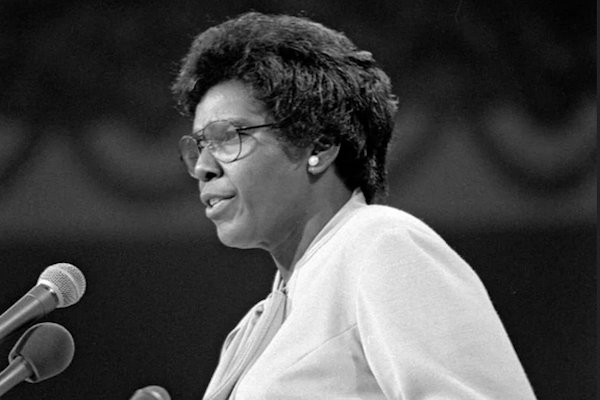For many years, the LGBTQ community in the United States has fought to have a voice. Speaking up, sharing our insights, and being heard are all critical aspects of creating a reality where every person is treated equally.
Lawyer, politician, and educator Barbara Jordan (1936-1996) dedicated her life to fighting for nationwide equality. She excelled in her work, becoming the first Black person elected to the Texas Senate after Reconstruction (1966), the first Southern Black woman elected to the United States House of Representatives (1972), and the first Black woman to deliver a keynote address at the Democratic National Convention (1976). Jimmy Carter considered choosing her as a running mate during the 1976 election, and Bill Clinton had hoped to nominate her for the United States Supreme Court but was unable to do so due to Jordan’s health concerns.
One of Jordan’s most celebrated talents was her powerful use of language. In 1974, she awed the nation with a speech delivered during Richard Nixon’s televised impeachment hearings. “My faith in the Constitution is whole; it is complete; it is total. And I am not going to sit here and be an idle spectator to the diminution, the subversion, the destruction of the Constitution,” she declared.
Jordan’s dedication to public service came with the cost of concealing her private self—specifically, her sexuality, which remained unquestioned until her obituary ran in the Houston Chronicle. When Jordan passed from pneumonia in 1996, Nancy Earl was listed as her “longtime companion.” Despite the decades they spent together—the two met on a camping trip in the ’60s and lived in a house they built in Austin until Jordan’s death—Jordan had never publicly addressed Earl as her partner.
According to an interview with one of Jordan’s advisors after her death, early in Jordan’s political career, a small group of advisors warned her that “the image of two women being so close could damage her political aspirations.” From then on, she agreed to publicly distance herself from her lesbian identity.
However, her decision to put her career and service to country over her personal life didn’t mean a complete silence around the tenderness of her feelings for Earl. Her sisters sent welcoming letters to Earl following a party she and Jordan hosted at their Austin home, and Earl was invited to sit with the family at Jordan’s funeral. Earl has never confirmed the romantic nature of her relationship with Jordan, but as Jordan’s friends have often said, she wanted to be remembered for the work she did for the American people above all else.


